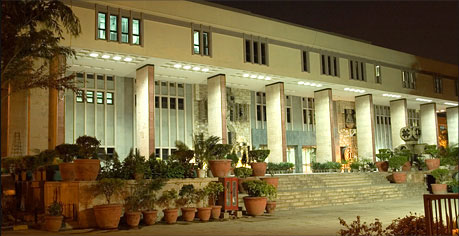Special Court Designated Under PMLA, Can Try Scheduled Offence Under Prevention Of Corruption Act: Delhi High Court

The Single Bench of Justice Vibhu Bhakru has recently observed that Special Court (PMLA) can try scheduled offences under Prevention of Corruption Act, 1988 (“PC Act”).
“Special Court is also empowered to try the predicate offence and it is not necessary that the said offence be tried along with the offence punishable under Section 4 of the PMLA in the same trial as contemplated under Section 43(2) of the PMLA. This leads to the inevitable conclusion that the scope of Section 44(1)(a) cannot be restricted to the trial of only such predicate offences that can be tried along with the offence punishable under Section 4 of the PMLA, in the same trial.”, the Bench remarked.
The decision came in light of a petition filed assailing the order dated October 5, 2020 passed by Special Judge (PC Act), Rouse Avenue District Courts as per which the Judge directed the transfer of trial to Special Court (PMLA) at Patiala House Court Complex. The issue that arose for consideration was whether the Special Courts constituted under Section 43 of the PMLA had jurisdiction to try an offence punishable under the PC Act.
The Court in this regards observed that Section 28 of the PC Act indicated that the PC Act was enacted in addition to & not in derogation of any other law & the object of the act was to consolidate & amend the laws relating to prevention of corruption & for matters connected therewith. The Parliament in its wisdom had considered it appropriate that cases under the said Act be tried by Special Judges, who are or have been Sessions Judges or Additional Sessions Judges or Assistant Sessions Judges under the Cr.PC. Concededly, the Special Judges designated under the PMLA would also necessarily have to meet the said qualification. Thus, the Special Judges designated in terms of the PMLA were not, per se, ineligible or unqualified for being appointed as a Special Judge under the PC Act & that the other provisions of the PC Act, which related to investigation & the procedure for trying an offence under the PC Act, would have to be followed.
There was no reason to believe that the legislative object of enacting the PC Act as a special act would not be served if the trial was conducted by a Special Judge appointed under the PMLA, the bench said.
“Considering the objective, the language of the two statutes and the fact that the PMLA is a later statute; the provisions of Section 44(1) of the PMLA must be accepted as an exception to the provisions of Section 4(1) of the PC Act.”, the Court also added.
It was further added that there was no ambiguity in the language of Section 44(1)(c) of the PMLA & since the Special Court had taken cognizance of the offences punishable under the PMLA, the concerned court, trying the scheduled offence, was required to transfer the same to the Special Court designated under the PMLA, on an application moved by the authority, authorised to make a complaint under the PMLA.
On the aspect of inconsistency between the provisions of Section 44(1) of the PMLA & statutes other than CrPC, the Court added that the non-obstante provision under Section 44(1) of the PMLA would be of no relevance because it provided that the provisions of Section 44(1) of the PMLA would be applicable notwithstanding any provisions of the Cr.PC and addressed the issue of inconsistency between the provisions of Section 44(1) of the PMLA and Cr.PC., but did not go further.
Case Title: Upendra Rai V. Central Bureau Of Investigation & Anr.| W. P. (CRL.) 1923/2020
